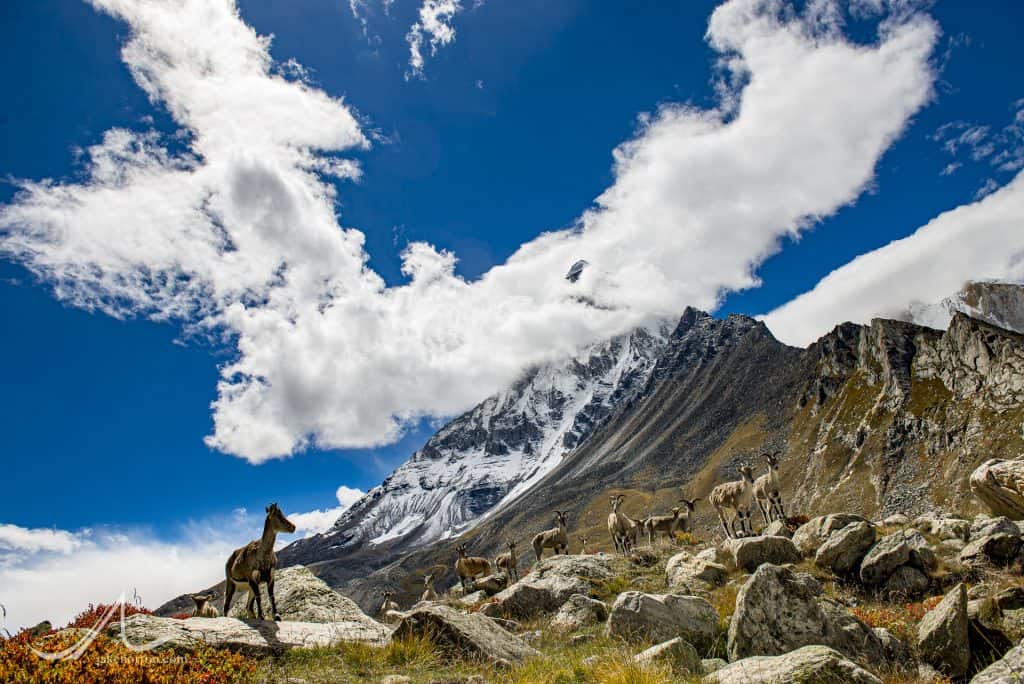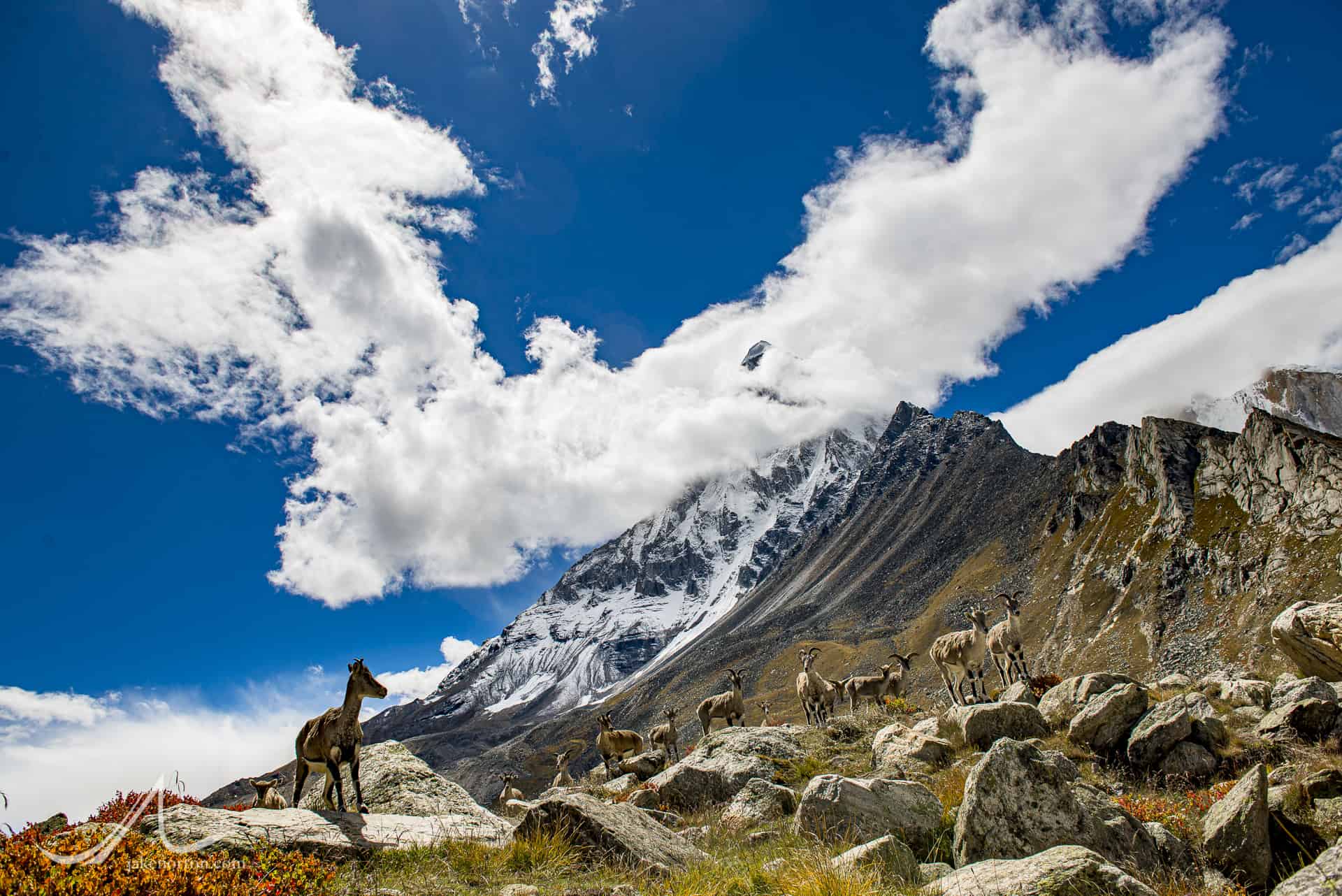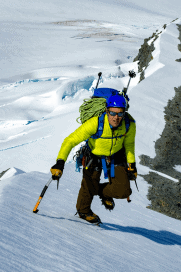It’s Earth Day. A day we humans set aside to celebrate our little, blue ball as it hurtles through the heavens, a unique sphere orbiting an equally unique star of a unique solar system in an endless universe. This earth, this miniscule ball of water and stone, but a grain of sand in the immeasurable vastness of space, has given so much of its uniqueness to us humans from time immemorial: its fortuitous primordial slime had, Goldilocks-like, just the right combination of fundamental elements to birth simple organisms, which evolved into more complex ones, and eventually, for better or worse, allowed us to come into being. We know yet of no other planet just like ours, favorable for life as we know it; it is unique, and should be celebrated today, and every day.
And we, celebrating this earth, are unique as well. We’re unique — you, me, all of us — in that we can produce thinkers like Buddha, Muhammed, and Jesus, Confucius, Aristotle and Rumi, Mother Theresa and Martin Luther King, while also spitting out the vile excretions of Hitler and Stalin, Pol Pot and Theoneste Bagosora, King Leopold II, Slobodan Milošević, and many more. Humans created the concept of an all-loving god, and have then killed non-believers in his all-loving name. We’ve created works of art with such beauty it brings us to tears, and weapons of destruction so horrific we weep even harder.
We are unique — you, me, all of us — in our ability to love and hate, create and destroy, unite and divide in equal measure, often simultaneously.
And, we are unique — certainly on our Earth, perhaps in our universe — for celebrating today this blue ball which we, and we alone, are destroying, day by day, bit by bit, with seemingly reckless abandon. We are unique in these crimes against our planet in that we are, as only we could be, the perpetrators, victims, and only solution to our current, precarious situation.

Along with all this uniqueness is of course this particular Earth Day: today we find ourselves, for the first time in 50 years, celebrating our planet amidst a global pandemic, one which has ground our powers of creation and destruction, to a sudden and dramatic halt. While remarkably painful for our species, this grinding of global gears is a boon to our environment: cities like Kathmandu, Nepal, can see clearly for the first time in decades; India’s lockdown has made the sacred Ganges River cleaner than Modi’s billion dollar “Namami Gange” project; and across the globe, citizens in lockdown are able to see — if not directly experience — cleaner air and water. (Interestingly, and perhaps ironically, Earth Day was begun in 1970 with a specific focus on air and water.)
All of this causes me once more to think about our role in — and perspectives on — the environmental challenges we face as a species, and the intense, uniquely-human hubris we show in how we talk about the very real, existential crises of environmental degradation and climate change.
We humans are prone to distancing ourselves from our natural environment. Historically we’ve been Machiavellian in our approach to our earth, destroying and denuding and degrading so long as we (or a small subset of “we”) benefitted from the actions. Through much of recent history, it has been easy to do so, for the consequences of our actions generally had negative impacts only on flora and fauna, or disenfranchised people at home and abroad. But today, things have changed. The impacts of climate change and environmental degradation are beginning to be felt by everyone, regardless of race or religion, location or wealth. (Even some of the staunchest critics, the champion ostriches of climate change denial, have made private moves acknowledging the reality we face, if not public ones.) Despite the overwhelming evidence of human-caused climate change — and the havoc it already is and will continue to wreak — there are some who choose to deny it, to fight any movement to curb our CO2 emissions, to better protect our environment, our unique history and future.
Perhaps one additional uniqueness of us humans could be part of the solution to our predicament: the concept of mortality. Certainly, other animal species understand the finality of death. But, we alone seem able — at least thus far — to contemplate the meaning of death, to envision our individual and collective mortality, and act accordingly in the non-immediate term to avoid or postpone it. It is this ability that gave rise to human developments ranging from Clovis points to atomic bombs, Mohenjo-daro to Manhattan. And it is the evolution and overuse of those same developments that created the quagmire our world faces today.
But, it is our world, it is our problem, as humans, and it is specifically, and uniquely our fate that lies in our very own hands. For it is the ultimate hubris of humanity to believe — as some do — that we will destroy nature. We have done great damage, certainly, and continue to do so. Our real and metaphorical footprints will be visible on the earth’s landscape for many millennia…but nature will continue on, as she has for billions of years. If we succeed, through action and inaction, arrogance or stupidity or inertia, in eliminating anything great from the surface of this beautiful, unique, and glorious planet, it will be us.
And, to all of us, this thought should induce a profound sadness, for that “us” includes all of us. It is not just the poor in faraway lands who have been summarily dismissed for centuries. It is not just that guy over there or some dude in the Maldives or a farmer in the Andes or Hindu Kush. It is you. It is me. It is my wife and kids, or perhaps their kids or grandkids, who will face the unwavering reality of our collective inaction. And it is our individual and collective legacies that will be eternally erased, snuffed out like the Dodo, but by our own hand, should we continue our current ways.
In his brilliant essay “And the Coyotes Will Lift A Leg,” Robert Michael Pyle writes (find this essay and more in the Norton Book of Nature Writing):
It would be dishonest to say that I feel no sadness at the prospect of the passing of humanity. Untellable sadness greets the very thought of it. When I consider the moldering of the last lost manuscript of Mozart; the combustion of the libraries when Fahrenheit 451 is reached early in the firestorms; the tumbling of towers and the crumbling of cottages, I could swoon (if I knew how) with earnest, dolorous regret. But think: all of the sadness in the world belongs to us. When we’re gone, there will be no sadness, for it is a human conceit…The fact is, nature doesn’t care. Only we care.
Only we care. Or, at least, we should care.
This little planet of ours, rocketing through space, does — despite its aforementioned uniquenesses — share something with every other rock in the infinite universe: the ceaseless, relentless, uncaring passage of time. The ticking of the clock is the ultimate equalizer: its dogged progression eventually claims all; every species one day meets its end. Should we, as a species — but one of some 8.7 million, each as unique as we humans — succumb to inertia, decide we don’t care…we, too, will one day go extinct. The current dilemma, the challenge of our time, is to decide if that day will come sooner, or later.
In 1968, Edward Abbey wrote in Desert Solitaire:
In deep stillness, in a somber solemn light, these beings stand, these fins of sandstone hollowed out by time, the juniper trees so shaggy, tough and beautiful, the dead or dying pinyon pines, the little shrubs of rabbitbrush and blackbrush, the dried-up stalks of asters and sunflowers gone to seed, the black-rooted silver-blue sage. How difficult to imagine this place without a human presence; how necessary. I am almost prepared to believe that this sweet virginal primitive land will be grateful for my departure and the absence of the tourists, will breathe metaphorically a collective sigh of relief — like a whisper of wind — when we are all and finally gone and the place and its creations can return to their ancient procedures unobserved and undisturbed by the busy, anxious, brooding consciousness of man.
Grateful for our departure? One more expression of human vanity. The finest quality of this stone, these plants and animals, this desert landscape is the indifference manifest to our presence, our absence, our coming, our staying or our going. Whether we live or die is a matter of absolutely no concern whatsoever to the desert. Let men in their madness blast every city on earth into black rubble and envelop the entire planet in a cloud of lethal gas — the canyons and hills, the springs and rocks will still be here, the sunlight will filter through, water will form and warmth shall be upon the land and after sufficient time, no matter how long, somewhere, living things will emerge and join and stand once again, this time perhaps to take a different and better course. I have seen the place called Trinity, in New Mexico, where our wise men exploded the first atomic bomb and the heat of the blast fused sand into a greenish glass — already the grass has returned, and the cactus and the mesquite. On this bedrock of animal faith I take my stand, close by the old road that leads eventually out of the valley of paradox.
Yes. Feet on earth. Knock on wood. Touch stone. Good luck to all.
Let’s take today — and everyday — to celebrate our earth. To celebrate its uniqueness, and our very own uniqueness. May we find the strength to truly care, and to act.
Good luck to all, indeed.


